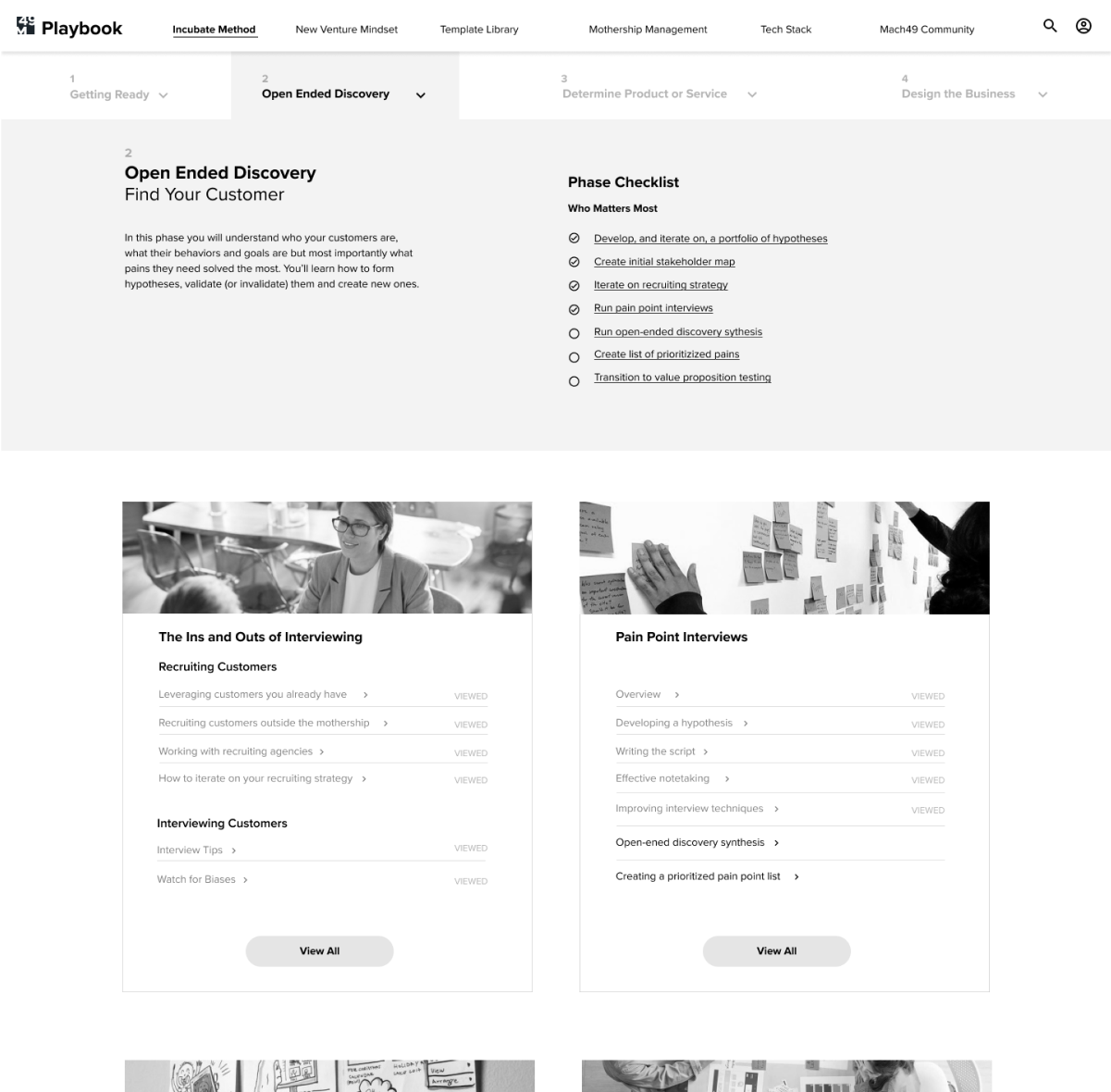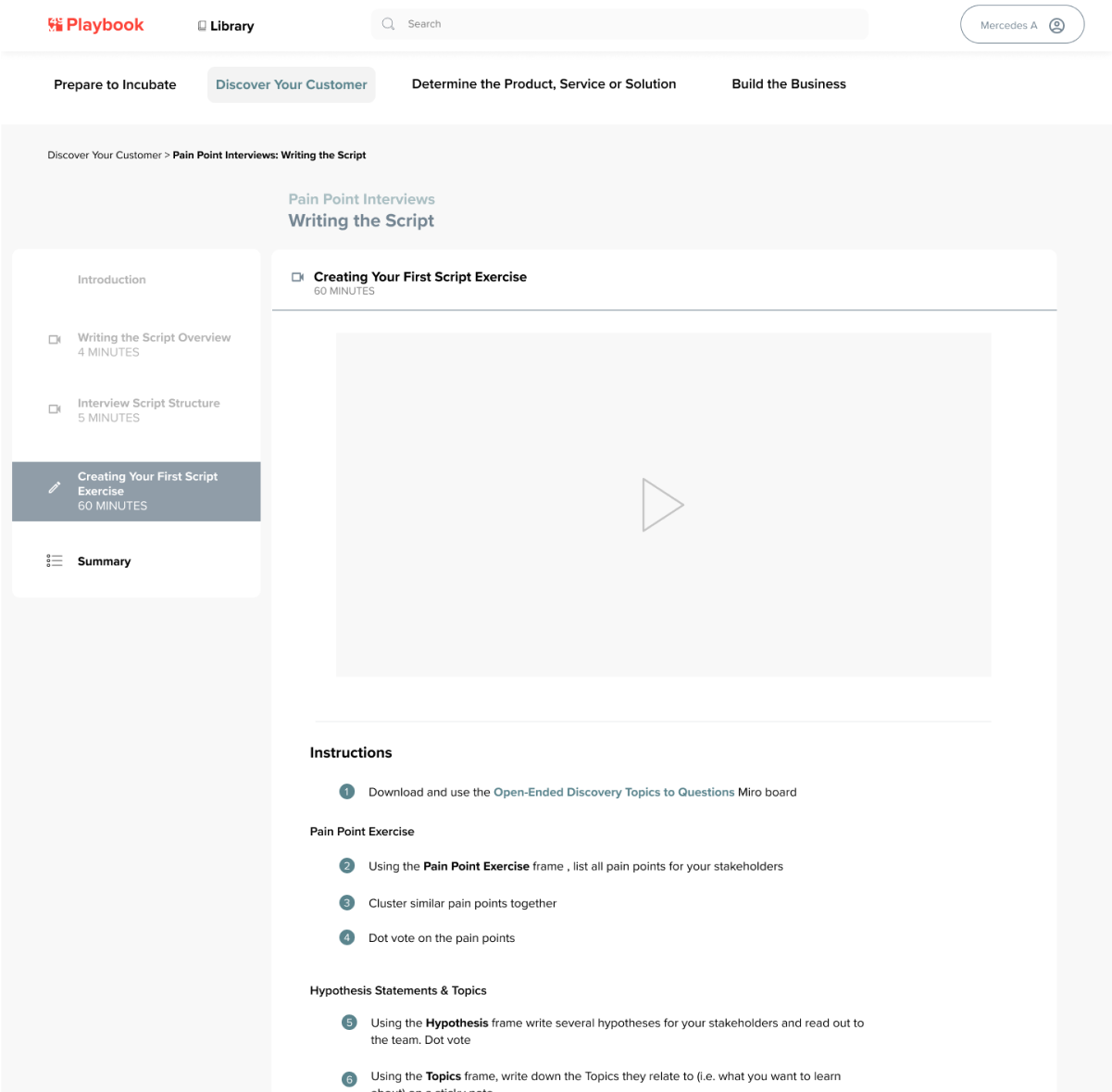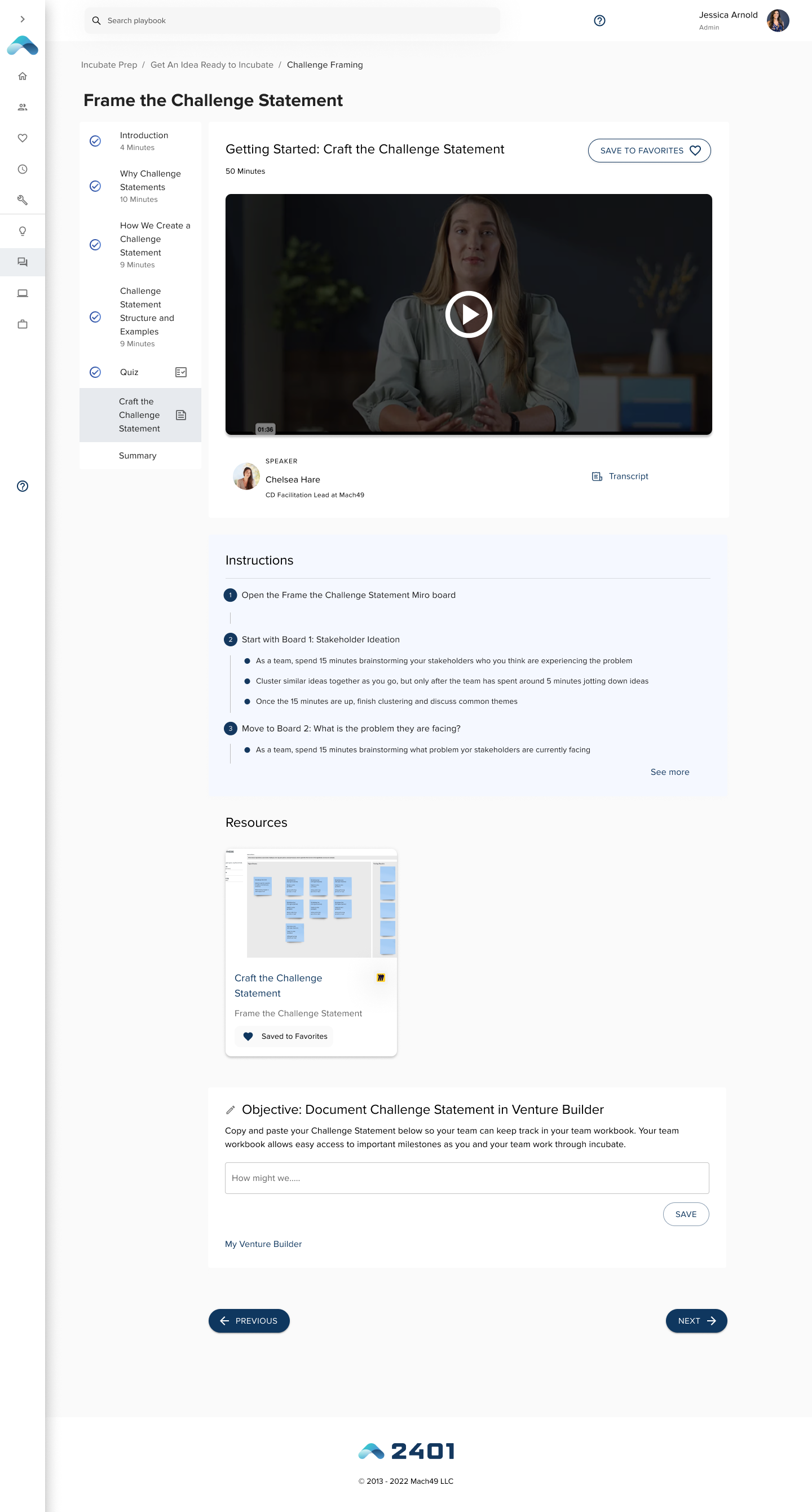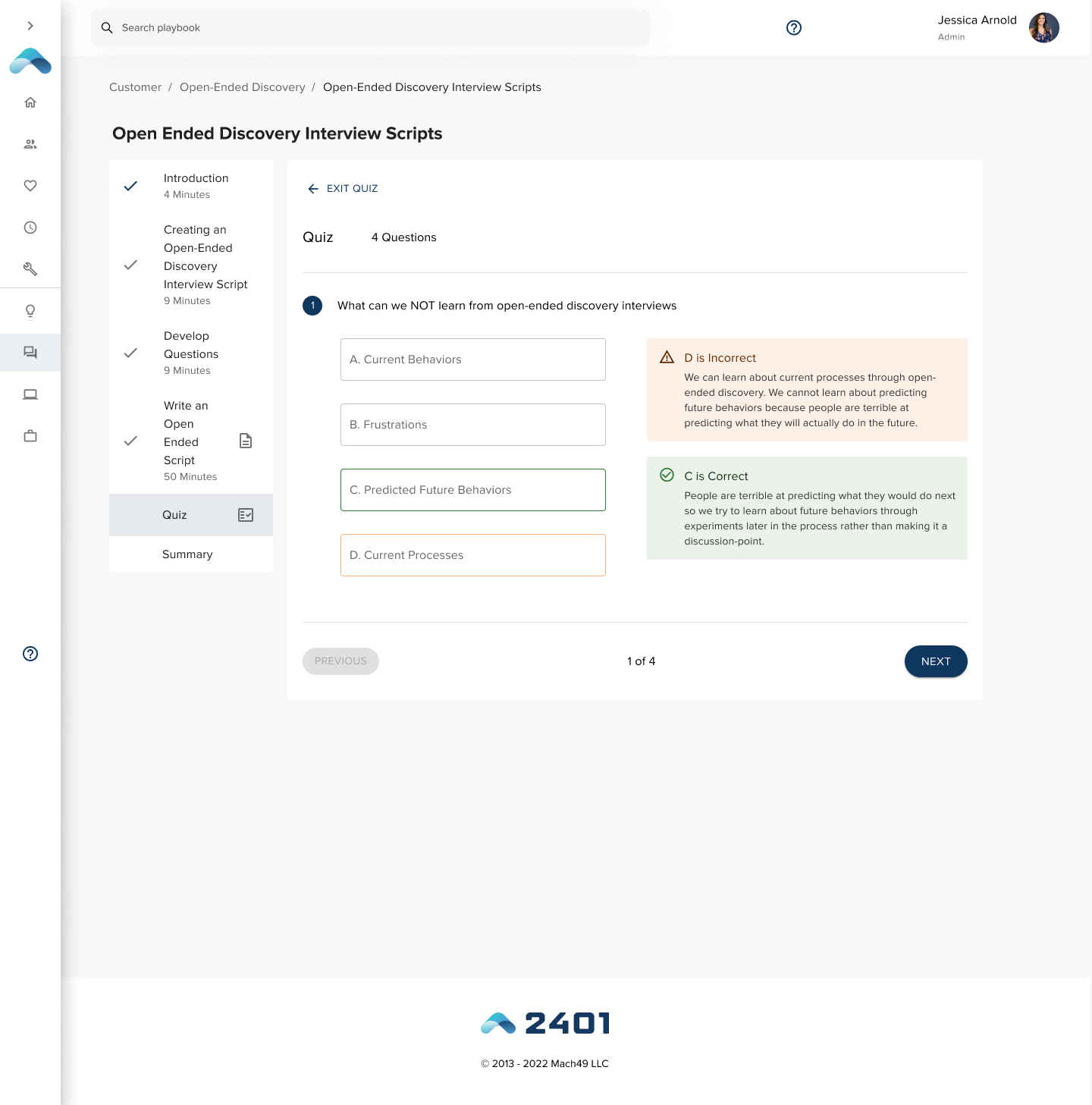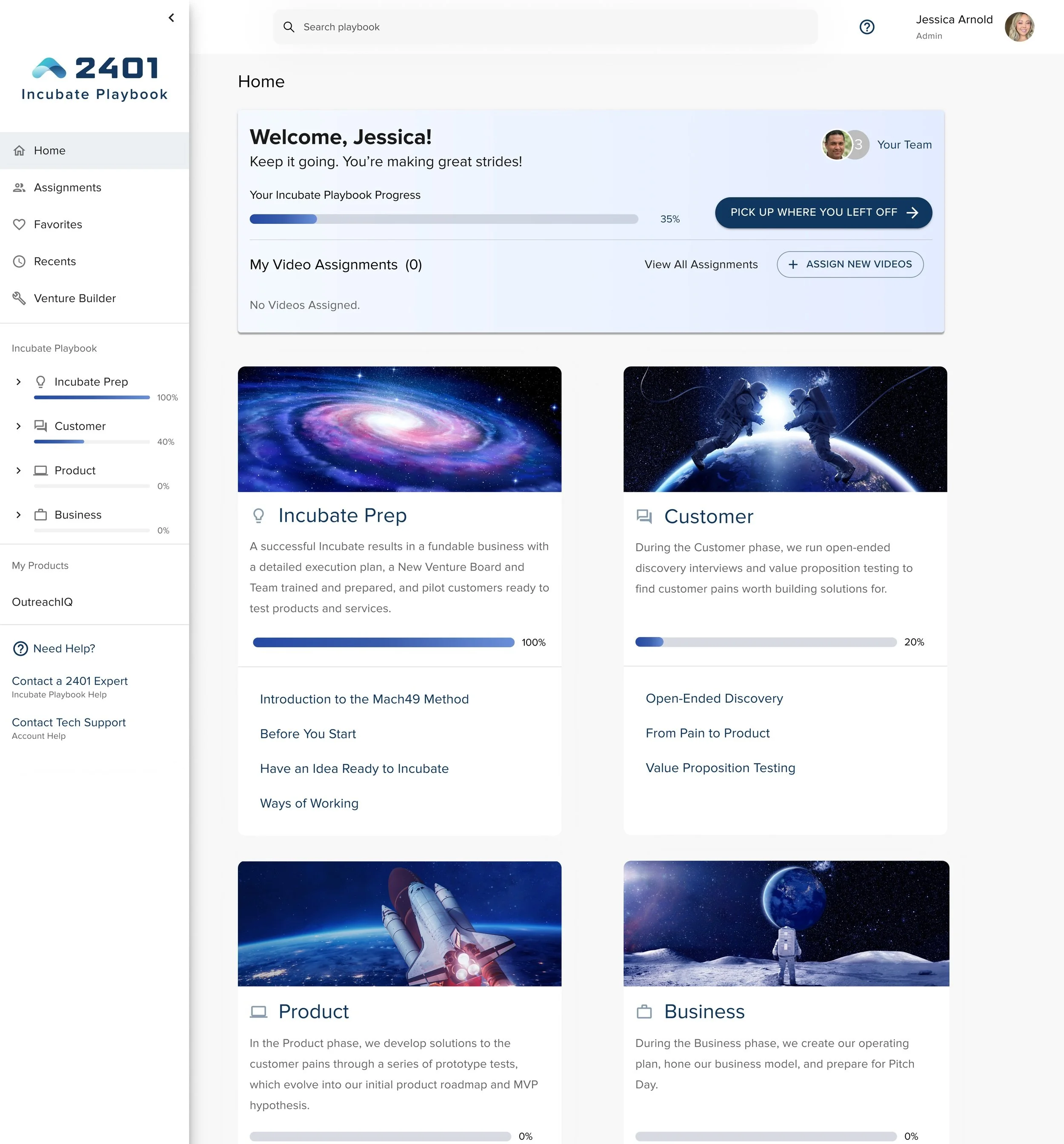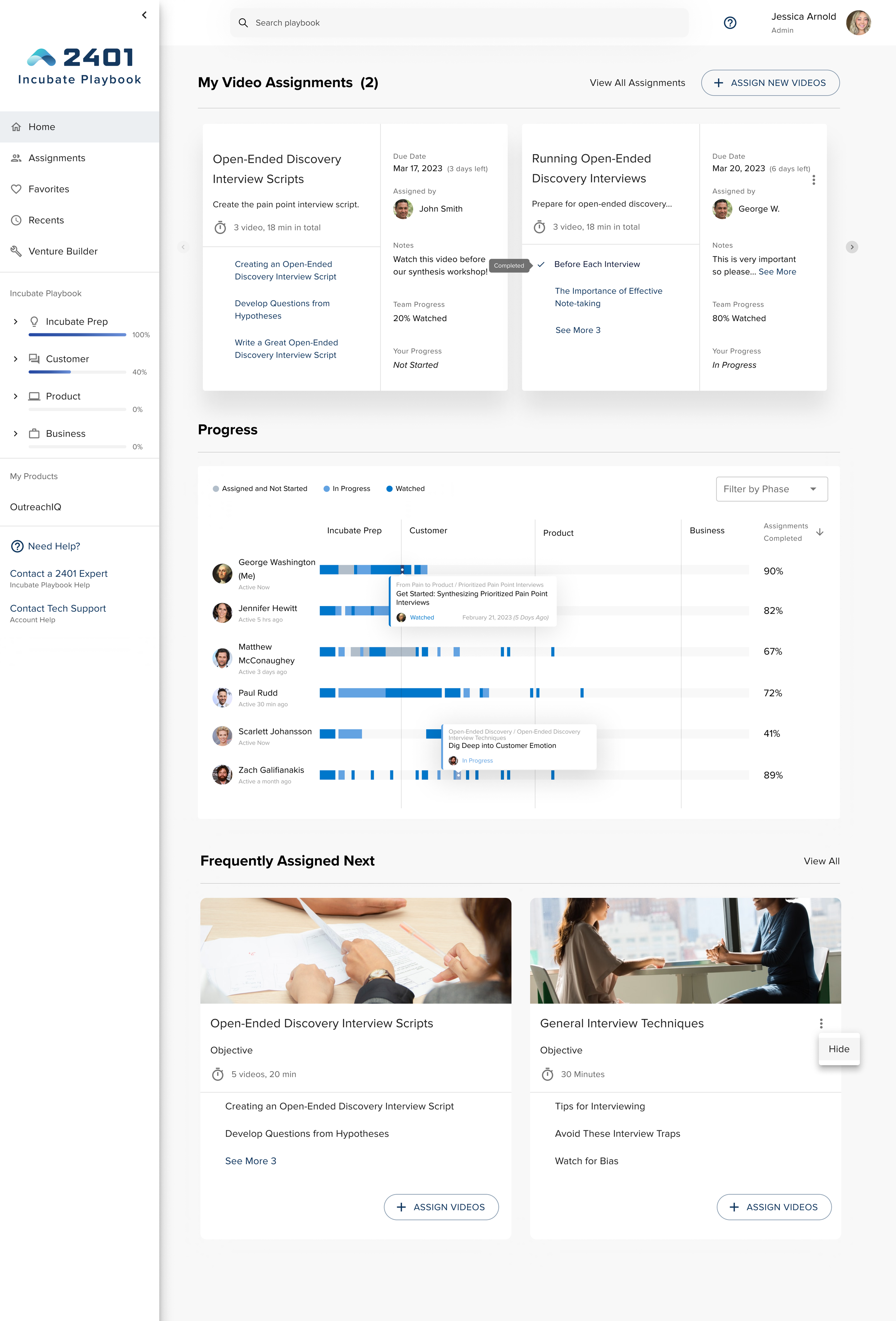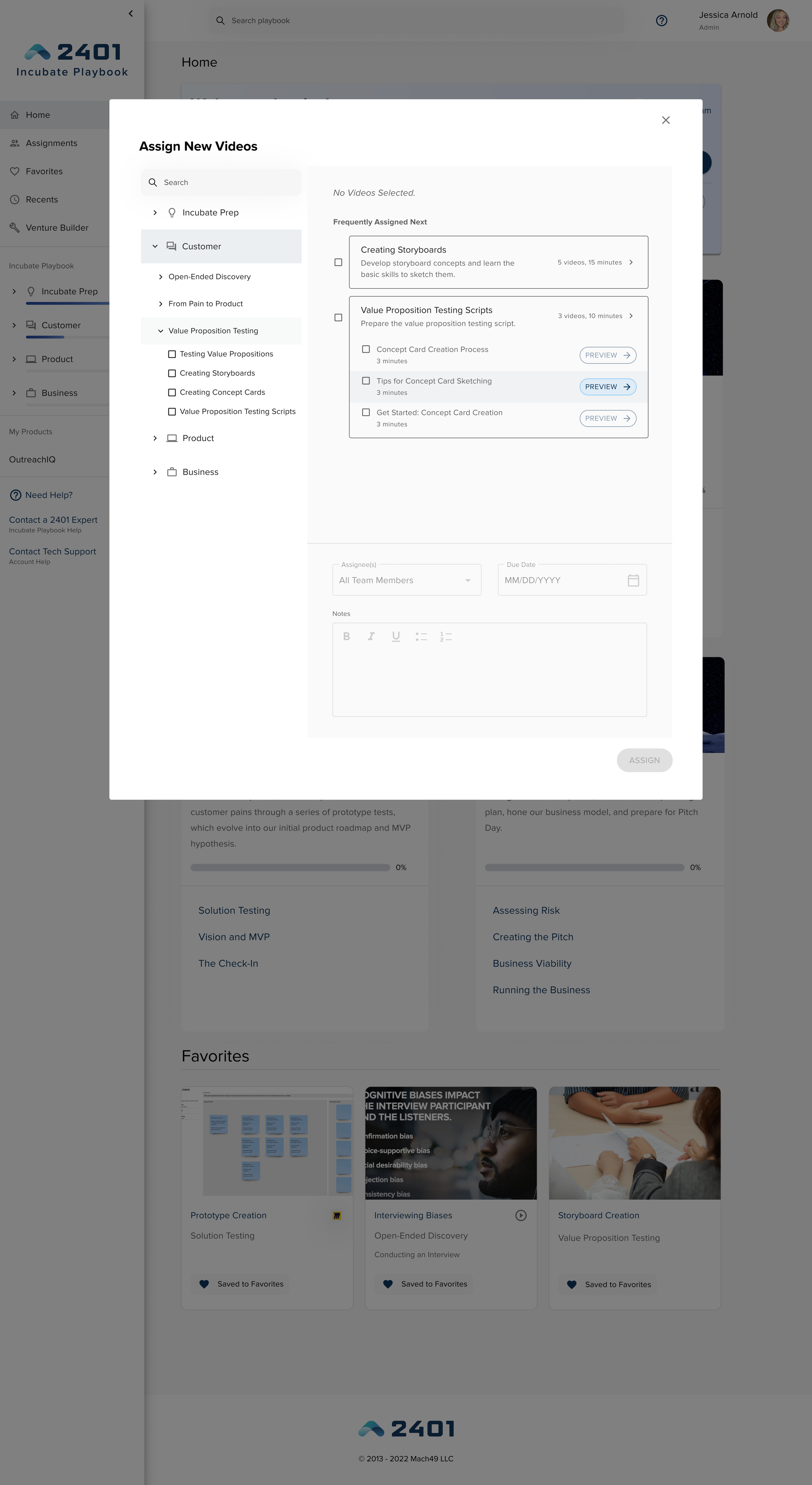Incubate Playbook
Empowering venture teams with the Incubate Playbook: a mobile-friendly digital platform for continuous innovation and execution
My Role
Researcher and Designer
The Team
2 Product Managers
5 Engineers
Project Duration
~1 year
The problem space
My previous company, Mach49 is a venture building company that was rapidly scaling, and we needed a way to help solve these growing pains. Mach49 works with Fortune 1000 companies to bring teams of entrepreneurs together, conduct customer research and find product market fit. This is a very intense, 3 month incubation process that often leaves both Mach49ers and our client entrepreneurs (or venture builders) overwhelmed and exhausted.
Understanding the pains
Our team set out to uncover the most common pain points amongst Mach49 employees and our venture builders. This is what we heard
Clients/Venture Builders
Uncertainty during the incubate process - what’s next?
Unsure whether they are making progress in their venture and ready to move to the next step.
Not enough time to absorb the method being learned, and not enough time to absorb the customer insights being gathered from their own research.
How might we enable new venture teams to confidently navigate the venture-building process, fostering self-sufficiency and success
Mach49 Employee Pains
There is a very steep onboarding when joining Mach49 and it’s hard to know where to look to find the resources I need to learn
Too much time spent “teaching” the method and not enough time “doing the method” (long workshops and trainings)
Scaling across teams meant that we can’t be in the room all the time, and teams need to be more self sufficient.
How might we equip Mach49 employees to quickly learn the Mach49 method independently, enabling them to effectively support new venture teams?
Let’s start designing
I started prototyping out various designs to put in front of both sets of users to see how their mental models worked in regards to the Mach49 method. I worked with one other researcher to define the prototype tests.
The Goal: A SaaS Venture Building Platform
Originally we wanted the platform to be a fully functional SaaS platform where users would be able to learn and do in the same place. The idea was to be able to integrate into all of our tools or build our own tools. So we started testing, and iterating, and testing again.
Low Fidelity Prototype Designs: The goal was to test initial mental models around the content and venture building. The designs were meant to be simple enough to gather feedback but not refined enough to distract.
Medium Fidelity Prototype Designs: Introduced more methods of progress tracking and check list based on feedback
High Fidelity Prototype Designs: Further refining usability and functionality
200+
Prototype Interviews
30+
Prototype Iterations
10+
Miro Boards with Interview Notes
Key learnings
Experienced users sought flexibility to navigate freely and jump around, while inexperienced users preferred linear guidance.
Video content needed to be short and succinct or else they would lose interest
Having concrete examples from past projects helped them connect and understand the method more
Having visibility into what was next, and where they were in the process was incredibly important.
One major overarching theme emerged…
But what exactly did that mean? We discovered they were eager to monitor both the learning journey and the tangible outcomes of what they were building.
Users wanted to track progress
This prompted a critical reflection:
How can you effectively track progress in a process that is inherently iterative?
We realized we couldn’t simply provide a checklist of tasks and guarantee that, by completing them, the venture team would automatically emerge with a successful business.
The pivot
We knew building all our own tools and a full functional SaaS product would take significant time, and with tight time constraints to launch, we decided to start by focusing on the learning aspect with a small element of doing.
To balance features, we tracked progress through learning and added a simple way to collect user data during the process. Since teams were already using tools like Miro and Airtable, we linked each team’s spaces to the product.
Final Designs
My team was officially rebranded as 2401 (Mach49’s SaaS team) and the 2401 Incubate Playbook was born.
This digital learning platform complements our traditional in-person training, providing a robust, accessible, mobile friendly resource that supports the entire venture building process. The Incubate Playbook ensures that teams have continuous access to critical knowledge and tools, enhancing their ability to innovate and execute throughout the stages of venture development.
Activities
The learning material included method lessons and activities. In the activities users could watch a short clip of one of our experts walking through the activity, along with a step by step of the activity below. We linked up each team’s Miro boards before so they can easily access them directly from the playbook.
They could also document their challenge statement and other final deliverables as they did each activity.
Method Videos
Method videos ranged from technology setup to how to conduct an open ended interview, to prototype methodology. Users were provided with key takeaways for each - along with a summary at the end of the unit.
Quizes
Based on feedback that users wanted to make sure they were fully understanding the material, we implemented short quizzes for knowledge checks throughout.
Additional Features
After launch and initial testing Mach49 employees expressed a strong desire to be able to assign tasks on the platform and be able to track who has watched what.
Assigning Content
A new section was added to the home page for team members to see their current assignments or assign tasks.
On the new assignment page, users can view the assignments in progress and team progress.
Mach49 can assign specific videos, assign due dates and attach a messages to their team.
Final Thoughts
This project was a very long yet rewarding project, as we encountered many challenges and pivots throughout. We were a small team trying to solve the biggest problems our company faced. I loved diving into the world of software and being able to work with such a close working group of product managers and engineers. I had been teaching the Mach49 method to venture teams for five years, so I myself knew the pains we were facing, and the impact that our product would have.
Ultimately, our playbook was launched with huge success. The Playbook significantly enhanced clients’ understanding and confidence in the research process, equipping them with the knowledge and tools to drive innovation initiatives effectively. Internally, the streamlined training process, expedited the onboarding of the delivery team, empowering them to provide valuable support to clients.







